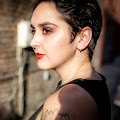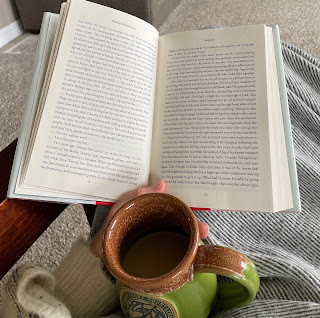Ah, the much-discussed, celebrated, and labored over first line... Is it
that important?
(See what I did there?)
Many in the writing and publishing world will go on at length on the critical importance of the opening line of any work, long or short. There are long-standing contests for opening lines - brilliant or cringingly terrible. Writers are expected to trot our their favorite first lines (which I notice is also part of this week's assignment at the SFF Seven). But do those opening lines deserve the significance they're given?
Yes and no. The thing is, first lines are low-hanging fruit. They're easy to pick on. They require very little reading and it's easy to analyze a single line of text. For the teachers, coaches, and advice-givers of all stripes, an opening line is a simple aspect of a work to assess. In that way, they're probably given far more emphasis than they deserve.
Unfortunately, a whole lot of the advice out there - not unlike a lot of writing advice - isn't terribly helpful. Writers are told that their opening line must "hook" the reader, who is presumably like a fish in this analogy, and reel them in to keep reading more. And hopefully buy the work in question.
And people rhapsodize over favorite opening lines, analyzing brilliance, but - again - this rarely yields useful advice on how to write them.
I spent a lot of years not sure what made an opening line a good one or not. Only recently, with a bunch of published works behind me, have I come across actually useful advice on how to craft an opening line: It needs to establish the sort of story it is, and pose some sort of question. It doesn't have to be a literal question, but it should invite the reader to wonder about something of interest to them.
A famous example of this is Elizabeth Barrett Browning's poem How Do I Love Thee. (Those who listen to my podcast, First Cup of Coffee, know I've been going down an Elizabeth Barrett Browning/Robert Browning rabbit hole lately. I blame Connie Willis.) Almost anyone can quote the opening line, even if they don't know the rest of the poem:
How do I love thee? Let me count the ways.
What does this line do? It establishes that the work is a love poem, and invites the reader to wonder about what those ways are.
Thus, my opening line above: I established what sort of writing this is - an informational article on first lines - and I posed a literal question that I'd be addressing.
Once I figured out this was all I needed to do, it made crafting that opening line much easier! Here's one of the first ones that I used this technique to write, from DARK WIZARD.
Gabriel Phel crested the last ridge of the notorious Knifeblade Mountains that guarded Elal lands on nearly three sides, and faced the final barrier.
This first line isn't brilliant by any stretch. What it does, however, is inform the reader that this is an alternate fantasy world, and it invites them to wonder about who Gabriel Phel is, why he's in this inhospitable land, and what this final barrier is. That's it. And you know what? It works. That book has done a better job of hooking new readers than anything else of mine. I think there are other reasons for that book's success, but I think that opening helps.
What's most important to remember is: just because the first line comes first, that doesn't mean it has to be written first. Certainly not perfected first. A lot of writers spend forever crafting that opening, trying to get it perfect - possibly because of this emphasis on first lines - and can circle that effort endlessly. That's my second piece of advice. Craft the opening once the work is finished, or at least drafted. It will wait. And that gives that low-hanging fruit time to ripen.








.png)






